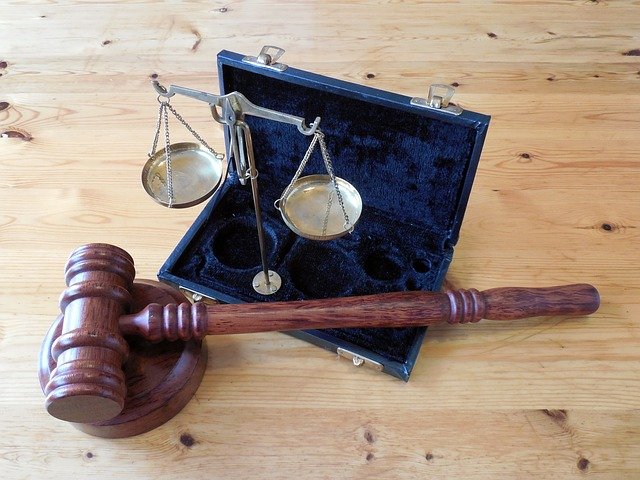The Nightwatch case.
Conversation of an EU trademark when the application has been withdrawn within the Appeal period.
The Intellectual Property Series
The Nightwatch case.
The Fourth Board of Appeal, in its decision on the Nightwatch Case R 1241/2020-4, issued on 26 September 2022, decided that the withdrawal of the EUTM application at any stage before the examiner's decision becomes final renders the decision of the Examiner non-binding, and the conversion application may proceed without the obstacles of Article 139(2)(b) of the EUTMR.
Article 139(2)(b) of the EUTMR states:
“Conversion shall not take place for the purpose of protection in a Member State in which, in accordance with the decision of the Office or of the national court, grounds for refusal of registration or grounds for revocation or invalidity apply to the EU trade mark application or EU trade mark.”
Facts of the Case
By an application filed on 3 December 2018, Preventicus GmbH (‘the applicant’) applied to register the trademark "NIGHTWATCH" in Classes 9, 10, and 44, claiming priority on a German trademark application with a filing date of 5 June 2018. On 17 July 2019, the examiner refused the registration of the trademark in its entirety under Article 7(1)(b) and (c), in conjunction with Article 7(2) of the EUTMR, declaring the trademark: a) descriptive and b) devoid of any distinctive character for the English-speaking public.
The decision dated 17 July 2019 was not appealed. Subsequently, on 11 September 2019, the applicant withdrew the application, which was confirmed by the Office the following day.
Following the withdrawal of the application, on 13 September 2019, the applicant requested the conversion of the EUTM application into national trademark applications for the United Kingdom, Benelux, Spain, Italy, France, and Poland.
Subsequently, the Office notified the applicant that the conversion for the United Kingdom was defective because the EUTM application had been rejected by the Office on the basis of descriptiveness and lack of distinctiveness in English in a decision on absolute grounds.
The deficiency refusal was based on Article 139(2)(b) of the EUTMR.
The applicant then requested that the Office divide the conversion request and continue with the conversion for Benelux, Spain, Italy, France, and Poland. On 11 October 2019, the Office informed the applicant that the conversion request had been duly transmitted to the national offices concerned.
On 28 November 2019, the applicant submitted its observations on the deficiency, maintaining its conversion request for the United Kingdom based on the argument that there was no final decision rejecting the EUTM application. Since the application was withdrawn during the appeal period, the Office could not make the refusal decision binding on the national offices where a refusal decision had not become effective. Consequently, the conversion request should also proceed for the United Kingdom.
The Registry of the Operations Department of the Office rejected the conversion request. In addition to the reasons presented in the deficiency letter, the Office replied to the applicant’s observations as follows:
- The withdrawal of an application by itself does not suspend or revoke a decision. A party who disagrees with a decision should file an appeal to potentially benefit from the annulment of the decision by the Boards of Appeal.
- Applicants are not allowed to circumvent the limitations of Article 139(2)(b) of the EUTMR, which prevents the conversion into national marks of trademarks for which a refusal decision has already been issued. Such circumvention would amount to an abuse of process by applicants of EUTM applications.
- The withdrawal of an EUTM application does not remove the grounds for refusal that gave rise to the objection. These grounds continue to apply, even in the absence of a final decision. For this reason, conversion requests submitted after a decision has been notified are refused under Article 139(2)(b) of the EUTMR.
On 17 June 2020, the applicant filed a notice of appeal against the contested decision, requesting that it be entirely set aside. The statement of grounds of the appeal was received on 17 July 2020. The applicant’s main arguments can be summarized as follows:
- The withdrawal of the EUTM application was neither abusive nor circumvented the statutory limitations on conversions.
- An applicant of a refused EUTM application can choose to withdraw the application before the refusal becomes final, avoiding a decision on the merits, and subsequently request a conversion based on the withdrawal, without the grounds of refusal being examined by the Office. The refusal of a conversion based on absolute grounds requires a final refusal. Where a refused EUTM application is withdrawn before the refusal becomes final, there is no final decision.
- Where a conversion is requested based on the withdrawal of a refused EUTM application, the Office does not have the right to conduct a second examination on the merits. Allowing conversion for an EUTM application withdrawn after the first objection is inconsistent with sound administration and equal treatment.
- The conversion request should have been forwarded to the UK Intellectual Property Office (UKIPO).
Main Issue
The key question before the Board was whether the Office could apply Article 139(2)(b) of the EUTMR when the EUTM application was withdrawn during the appeal period but no appeal against the refusal decision had been filed, or whether the Office should have applied Article 139(1)(a) of the EUTMR instead.
Decision
The Board decided that, pursuant to Article 49(1) of the EUTMR, the applicant may withdraw its EU trade mark application at any time. Since the applicant had terminated the examination proceedings by withdrawing its EUTM application, the refusal decision of the examiner should not have become final.
Decisions of the Examination Division do not take effect until the expiry of the appeal period. When the applicant’s withdrawal was received by the Office on 11 September 2019, the period for filing a notice of appeal against the refusal decision of 17 July 2019 had not expired. Thus, the decision of the Office had not yet taken effect pursuant to Article 66(1) of the EUTMR, second sentence.
Consequently, the withdrawal rendered the examination proceedings without purpose, and the refusal decision of the examiner should not have become final. Since there was no final decision on the refusal of the EUTM application, the Office should not have applied Article 139(2)(b) of the EUTMR. The Board also recalled that this provision, as well as Article 139(6) of the EUTMR, explicitly refers to “the decision of the Office.”
Other Articles on the same series
The "Metaverse Drinks" case R 2356/2022-2


Trademarks and Types of Trademarks


Expiration of Cyprus trademarks


The protection of foreign artistic work in the republic of Cyprus

"The only certainty is that nothing is certain."
–Pliny the elder
© Copyright MICHAELIDOU & CONSTANTINOU L.L.C
